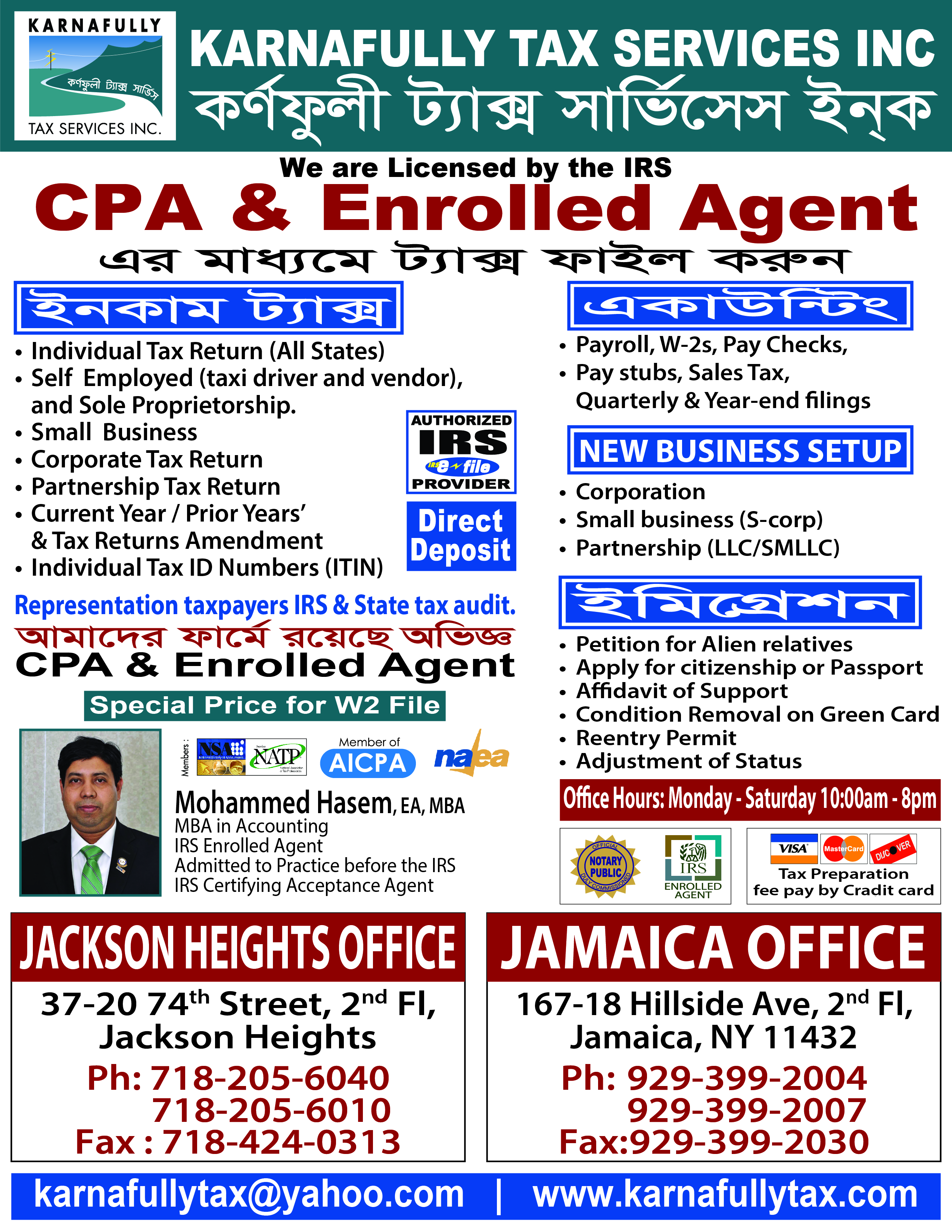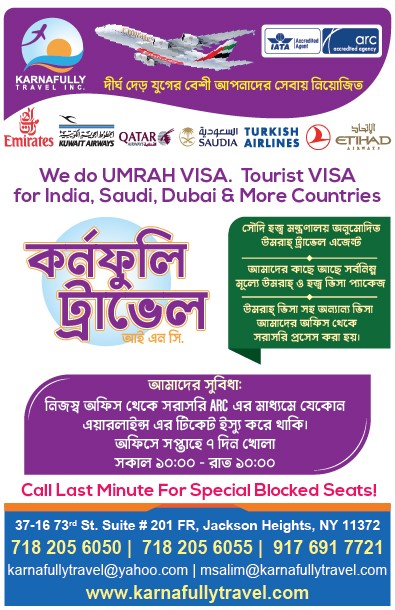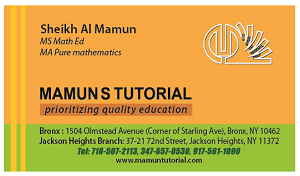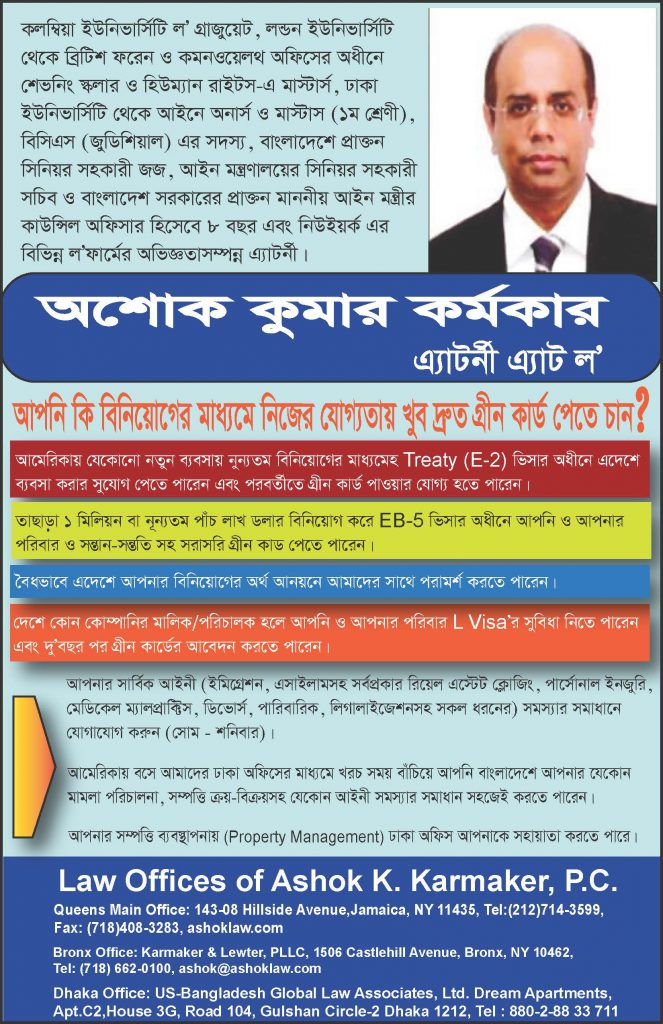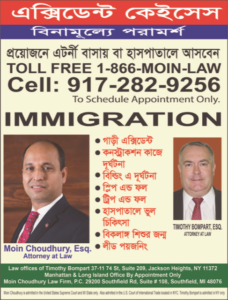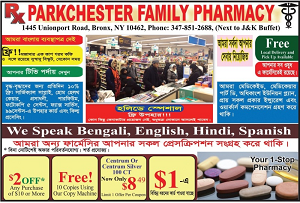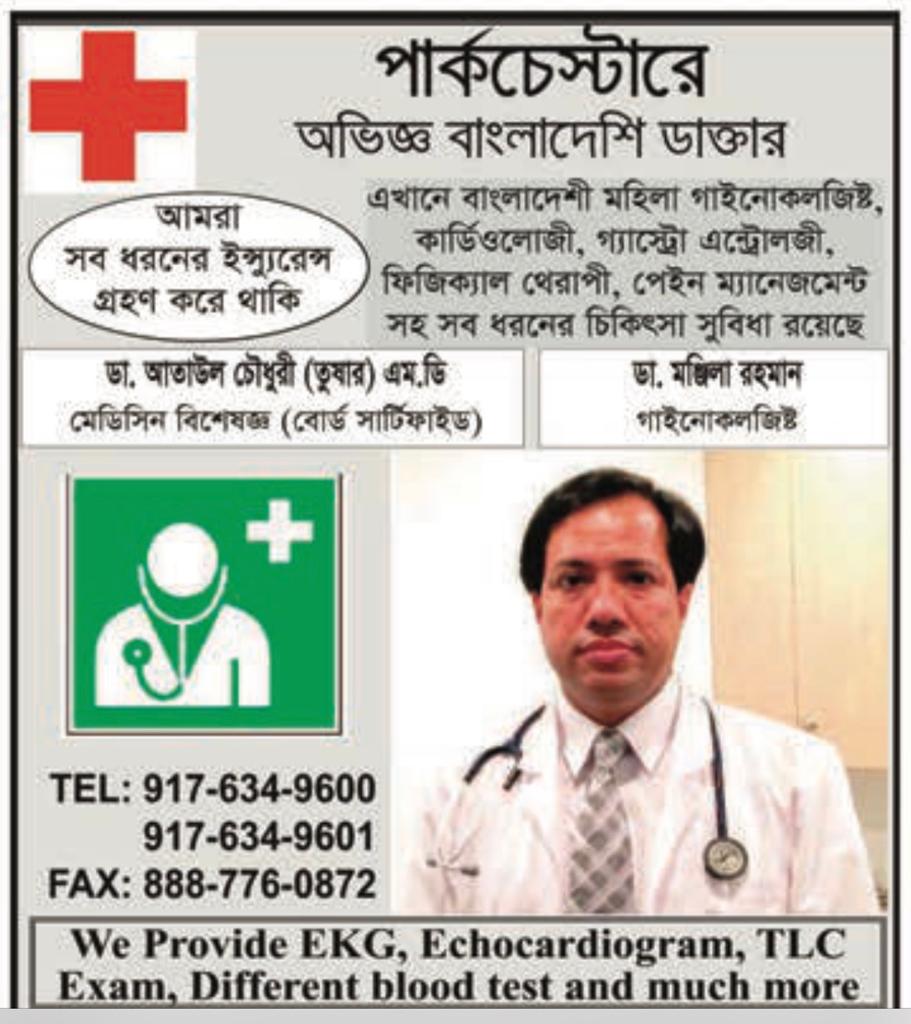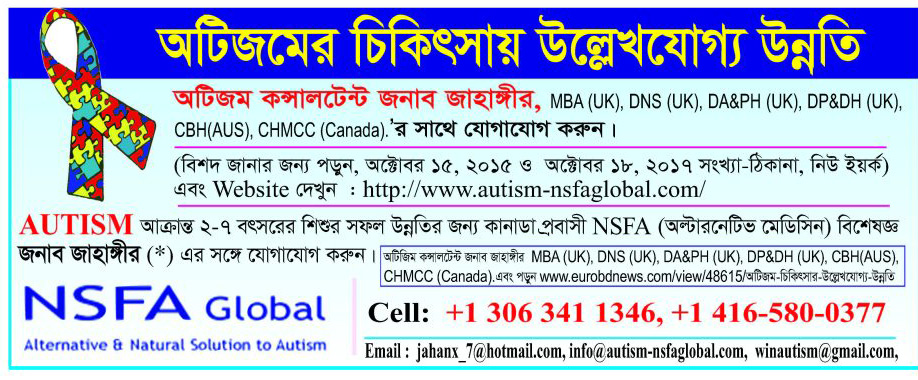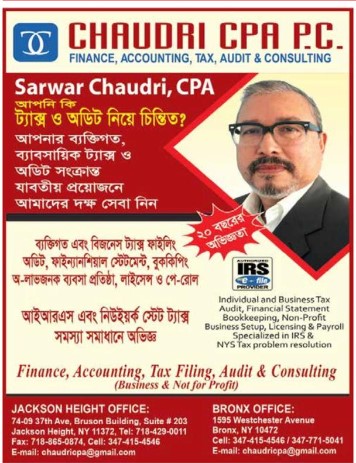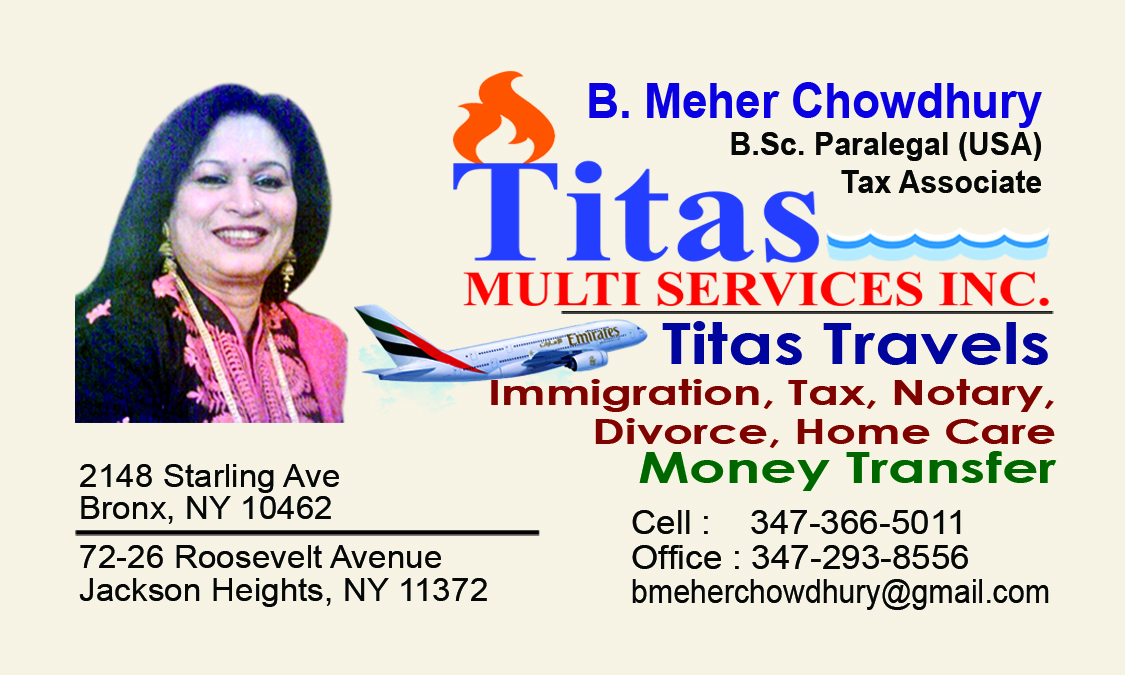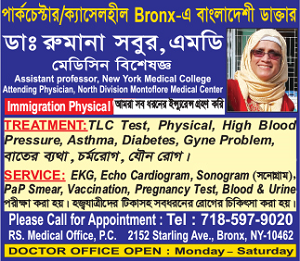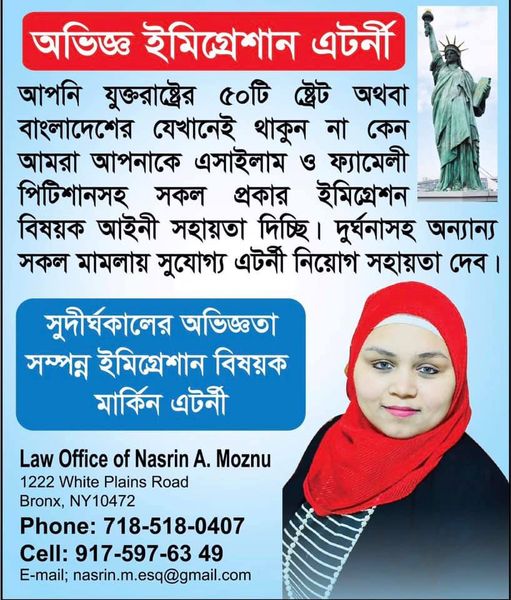Bangladeshi Community Emerges as A Deciding Factor in Buffalo Politics

Mohammad Zainal Abedin : Bangladeshi Community though is a recent ethnic group settled in the Buffalo City of New York State (NYS), yet it rapidly emerged as a deciding power in local politics. The city is about 500 miles away from New York City (NYC).
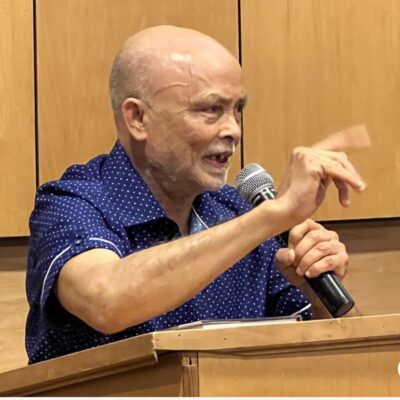
A one-time flourishing city Buffalo started to decay in 1912 facing the threat of higher salary and unionism. It faced final blow in the mid-1970s. I should say more precisely, in between 1970 to 1984 when the region lost 70,000 jobs it became deserted.
The ruined city resurrected when some American companies relocated their factories there and the fortune-seekers, like the Bangladeshis and others, from some states of America, mainly NYS, thronged in Buffalo. Now Buffalo is the second largest populous city in NYS after NYC.
Arrival of the Bangladeshis
Bangladeshi settlement in Buffalo sparsely started in 1991, even earlier. It gradually increased over the span of time.
Before the massive flow of the Bangladeshis to the Buffalo region, a Bangladeshi cancer physician ANM Nazmul Khan came to Buffalo in 1999 to get his Ph. D. from State University of New York at Buffalo when there were about 10 families of Bangladeshi professionals (like medical doctors, engineers, teachers). Out these professionals Dr. Khan mentioned two physicians Dr. Abu Ahmed and Dr. Shifiqur Rahman who came to Buffalo in the late eighties.
He categorically said, he does not know who the first Bangladeshi was reached or settled in Buffalo. He even said, he did not see any non-professional Bangladeshi in any places of Buffalo wherever he or his friends went in those days.
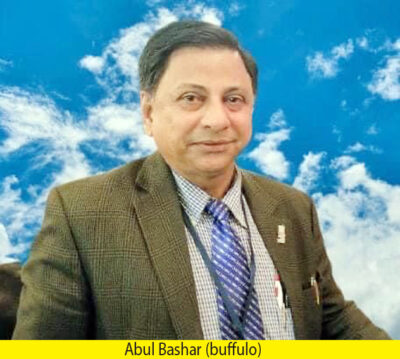
A Bangladeshi businessman, Abul Bashar hailing from Brooklyn of NYC, said when he went to Buffalo in 1995 to arrange admission of his son into a madrasha he saw some Bangladeshi college students in the region.
However, the flow of the Bangladeshis to Buffalo abruptly increased since 2006. Several sources including journalists, belonging to the same community, claimed that over 75 thousand Bangladeshi now reside in Buffalo. But no official figure could be procured from any sources of Buffalo, even City Hall.
Journalists, socio-political activists, businessmen and petty traders, community activists, working people, construction workers, carpenters, common labors, and professionals informed the number of the Bangladeshis increases every day.
Bangladeshis may be the third largest ethnic group after the white and the Black. Local Bangladeshis out of proud brand Buffalo City as ‘Mini Bangladesh’. Bangladeshi who visited the city or live there told that Bangladeshis own all types of business from groceries to salons.
One anonymous mainstream journalist in Buffalo quoting a Bangladeshi Transplant Karim wrote “one every street, every store I go into, there is someone who is Bangladeshi.”
Socio-cultural organization
Socio-cultural forums are the home for those professionals who are not directly involved in politics. Bangladeshi professionals to preserve the socio-cultural identity of the Bangladeshis floated such forums. One renowned Bangladeshi Mahbubul Haq, in 2013 a forum ‘Bangladesh Society of Buffalo’. Later in 2019 Dr. Nazmul Khan, along with some other Bangladeshis, led to form ‘BAKCO’ (Bangladeshi-American Social And Cultural Organization), WNY.
These socio-cultural organizations are clandestine political weapons of the intellectuals and academics.
These forums play a vital role to foster a sense of community and cultural identity among Bangladeshi immigrants in Buffalo. They also play an important political role in serving as a community liaison with municipal agencies.
Society people contributed to multi-group solidarity efforts, holding rallies, and submitting petitions, to insist that Buffalo welcome all religious and ethnic groups.
(https://ppgbuffalo.org/files/documents/data-demographics-history/populations_and_cultural_groups/datademographicshistory-_bangladeshi_immigrants_in_buffalo.pdf)
Dr. Khan informed, they organize cultural events on Bengali New Year Day, celebrate the birth anniversary of Rabindra-Nazrul, and National Day, International Mother Tongue Day, Victory Day, organize Eid-reunion, annual picnic, and cultural shows, etc.
Organizers believe these events help people to come together, enliven their socio-cultural heritage and national identity that indirectly create national unity.
Bangladeshis in politics
Bangladeshis became a pro-political nation since the British East India Company landed in their soil by boat. Politics is now, as if, a part of their daily life. So, wherever they go they become involved in politics whatever way they can. When they went to Buffalo, they did not forget politics.
Dr. Nazmul Khan, a non-political humanist specialized cancer physician provides prescription or suggestions precondition before deeply engaging in politics. He advises the Bangladeshis to attain quality and financial solvency before joining politics.
His campaign is: work and vote for those parties and politicians who are liberal and stand against racism, socio-economic and ethno-racial discrimination and, above all, uphold the spirit of human rights and values.
Nazmul Khan’s messages to the parents are: “Educate your children and keep your children away from all types of crimes and vices to save them from ruination, as they are our future, they may be our leader.”
Bangladeshis in Buffalo support either the Democratic Party or the Republican Party. Bangladeshis belonging to several professions told me during their telephonic interview that they are now really a deciding community in Buffalo politics, and they are very active and cooperative to the mainstream politicians.
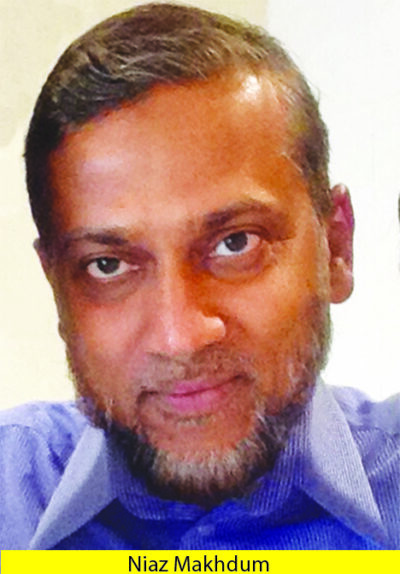
Citing their cooperation and generosity to the politicians of Buffalo, Niaz Makhdum, the editor of ‘The Buffalo Bangla’ (E-Paper) wrote the activists of the Bangladeshi community they rendered free services to both candidates of the mayoral election Byron W. Brown (D) and India Walton (R).”
Makhdum wrote, “While the members of other communities worked for the candidates in exchange of honorarium, the Bangladeshi volunteers campaigned for months together free of cost.”
Such free services brought reputation and recognition for the Bangladeshi Community as whole. Rewinning for the second term the city Mayor Byron W. Brown termed the Bangladeshis as “his best friends”, while his contender India Walton, who lost the race, expressing her feelings saying they are like, as if, the “Members of her family”. (Niaz Makhdum, Buffalo Bangla, 5th year, 6th issue, May 30, 2022)
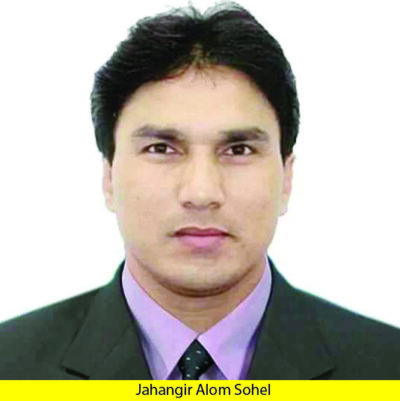
An active socio-politico community activist Jahangir Alam Sohel said, Bangladeshi Community plays a remarkable role in the socio-political arena of Buffalo. Mainstream politicians now count us as a power. The Bangladeshi Community proved their strength during the Mayoral election of 2021.
He said, even the non-Bangladeshi community people believe we had clandestine support to the incumbent Mayor Brian W. Brown who got an overwhelming majority, though we also worked for India Walton.
When asked how sympathetic the mayor is to their problems, Sohel praised him saying, he is very cooperative to our causes. “He has already donated us a piece of land for Eidgha (a place where the Muslim say their prayers during their two Eid Festivals), which was a longstanding demand of the Muslims.”
“The mayor even pledged to donate two more pieces of land, Sohel continued, “One for a Muslim Graveyard and the other is to construct a community center for the Muslims.”
The Buffalo Bangla’ as if, echoed the comments of Sohel. On May 2, 2020 on the occasion of Muslim Religious Festival ‘Eidul Fitr’ ‘Buffalo Bangla’ wrote further over one hundred Eid congregations held in Buffalo City and its adjoining areas. City Mayor Byron W. Brown attended the Eid congregation held at 701 Broadway Downtown Islamic Center where he greeting the Muslims saying ‘Eid Mubarak’. Addressing the devotees, “Mayor assured to arrange an Eid Ground for the Muslims in Buffalo.”
Sohel informed, even the police force and other departments of the administration are very friendly and cooperative with us in day-today life. They heartly welcome us whenever we go to City Hall.
Mary Jobaida, a prominent Bangladesh-origin Democrat, was an Assemblywoman candidate in 2020 from NYS election District 37. She is not running this year. She needed leave from politics to care for her family.
She moved to Buffalo and entered in teaching profession. She was posted in the same school where her kids are studying.
She informed Bangladeshis are still a growing community in the region. She said, inflow of the Bangladeshis to Buffalo remains as usual and the process may continue for years.
Replying to a question regarding the political future of the Bangladeshi community activists, she said, there are some promising and committed Bangladeshis who are active and committed to serve their party and its candidates and thus they become acquainted with the people.
She informed, during the last Mayoral election (10/8/2021) Bangladeshi community proved themselves as a deciding factor or ‘king Maker’.
She opined if Bangladeshi Community activists can continue this tempo of work “Within the next five to 10 years, some acceptable and qualified candidates may be acceptable to all other communities to serve them as their elected representative/representatives.”
Journalist Niaz Makdhdum also believes in future someone from the Bangladeshi community will emerge acquiring requisite qualifications and capabilities to be a people’s representative Buffalo.
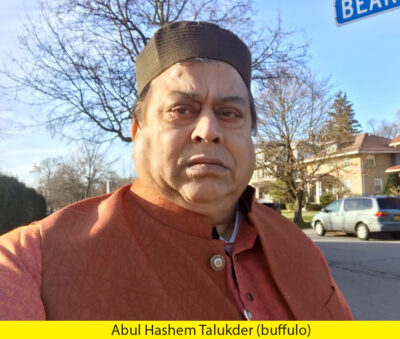
But Abul Hashem Talukder, a businessman, who settled in Buffalo in 2005, regretfully negated the aforesaid prediction. He said, “It is true Bangladeshi community can be an ‘Election Results determining power in Buffalo provided we could become united.” “We are divided into many groups and subgroups that fail us to exercise our power.” “Disunity eats up our strength from inside,” he lamented,
“As a result,” he opined, “We do not get proper place and value.” “If we were united, all our grievances would have been removed far earlier. The entire administration would have listened to us and implemented the commitments that they pledged to us before the election,” he opined. “They avail our disunity to keep their promises unimplemented.”
Some Bangladeshis, who declined to be named for personal reasons, said they right now deeply feel the need of having, at least, one elected representative in any level (of Buffalo) to remove their vital problems.
Explaining their grievances, one of them said, we need halal food in the groceries or restaurants, and we cannot enjoy religious festivals as schools and offices remain open on those occasions. Moreover, our children cannot eat halal food in their school.
One housewife explained if we have, at least, one elected representative from our community she/he will get chance to officially table the problem of the Muslim community and influence her/ his fellow-lawmakers to fix them (problems).
She said unless we can put pressure on them, we will have to suffer, and this is possible if we can emerge as a unified community. Under that situation, we will not have to beg anything from them, rather they will run behind us to get our blessing.*
[Mohammad Zainal Abedin is a Bangladesh-origin journalist & researcher who edits Bilingual Weekly ‘The Runner News’.]



